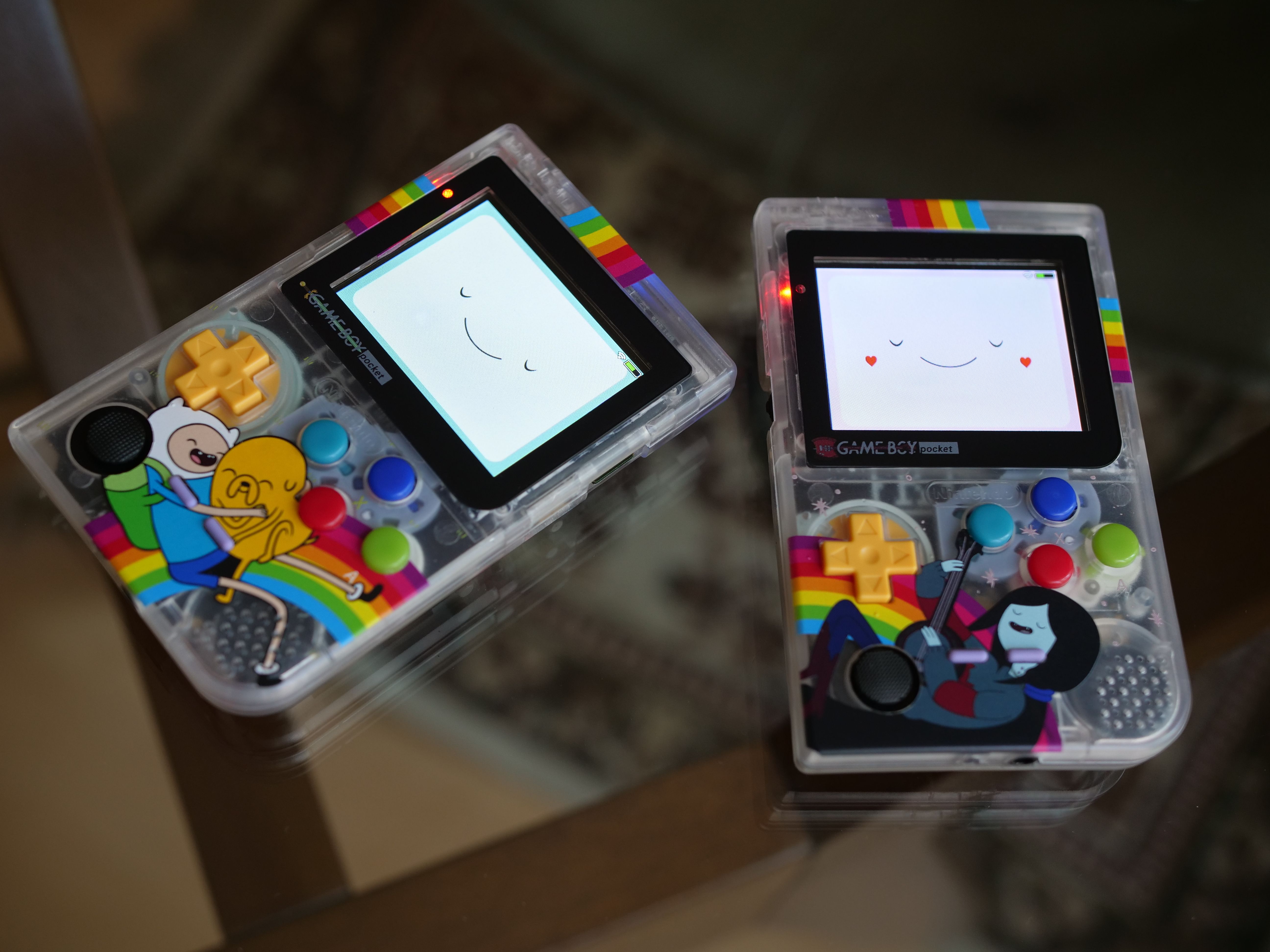
BMO: GameBoy Pocket Raspberry Pi Emulator
Building a custom handheld gaming device that combines the nostalgic form factor of the Game Boy Pocket with the power and versatility of modern emulation technology.
## The Vision: Authentic Form Factor, Modern Performance
The BMO project emerged from a desire to create the perfect portable emulation device – one that honored the classic Game Boy Pocket's iconic design while delivering the performance needed to emulate multiple retro gaming systems. Named after the lovable gaming console character from Adventure Time, BMO represents the perfect fusion of nostalgia and modern technology.
## Hardware Foundation: Raspberry Pi CM3 and Custom PCB
At the heart of BMO lies a Raspberry Pi Compute Module 3, chosen for its compact form factor and sufficient processing power for retro game emulation. The real magic happens with the custom daughter board designed by Kite Retro specifically for the BitBuilt forum community.
### Custom Daughter Board Features
- **Perfect fit** within the original Game Boy Pocket shell
- **Native button mapping** for authentic gaming controls
- **Audio amplification** circuit for crisp, clear sound
- **Battery management** system for extended play sessions
- **Video output** optimized for the custom LCD display
- **USB-C charging** for modern convenience
### Form Factor Precision
The custom PCB was meticulously designed to fit within the constraints of the original Game Boy Pocket shell, ensuring that every component placement maintains the authentic feel while providing modern functionality.
## Software Architecture: Custom Emulation Frontend
Rather than using off-the-shelf emulation frontends, BMO runs custom software tailored specifically for the hardware configuration and user experience goals of the project.
### Optimized Performance
```bash
# Custom boot configuration for maximum performance
gpu_mem=128
hdmi_force_hotplug=1
config_hdmi_boost=4
disable_overscan=1
framebuffer_width=160
framebuffer_height=144
```
### Game Library Management
- **ROM scanning** and automatic organization
- **Save state management** across all emulated systems
- **Battery-backed saves** for authentic cartridge experience
- **Custom artwork** and metadata integration
## The BitBuilt Community Connection
The BMO project was developed in collaboration with the BitBuilt forum, a community of makers and modders dedicated to creating custom portable gaming devices. This collaboration brought together:
### Community Expertise
- **PCB design specialists** who understood the unique constraints
- **Case modding experts** who perfected the shell modifications
- **Software developers** who contributed to the custom firmware
- **Beta testers** who provided real-world usage feedback
### Open Source Philosophy
All custom software and PCB designs were shared with the community, allowing other makers to build their own BMO devices and contribute improvements back to the project.
## Technical Challenges and Solutions
### Power Management
Creating an efficient power system that could provide hours of gameplay while fitting in the compact Game Boy Pocket form factor required careful component selection and circuit optimization.
### Display Integration
Sourcing and integrating a modern LCD that matched the original screen dimensions while providing crisp emulation output across multiple systems.
### Button Feel
Maintaining the authentic tactile response of Game Boy buttons while routing signals through the custom PCB required precise mechanical engineering.
## Emulation Capabilities
BMO supports a wide range of retro gaming systems:
### Native Systems
- **Game Boy** and **Game Boy Color** - Perfect native resolution
- **Game Gear** - Excellent compatibility
- **NES** - Smooth performance with custom controls mapping
### Advanced Systems
- **SNES** - Full speed emulation for most titles
- **Genesis/Mega Drive** - Excellent compatibility
- **Game Boy Advance** - Playable framerates for most games
## The Build Process
### Shell Preparation
1. **Careful disassembly** of donor Game Boy Pocket
2. **Precision cutting** for new component placement
3. **Custom mounting points** for the Raspberry Pi CM3
4. **Speaker grille modification** for improved audio
### PCB Installation
1. **Test fitting** the custom daughter board
2. **Button contact alignment** for perfect tactile response
3. **Display connector** routing and testing
4. **Power system** integration and validation
### Software Configuration
1. **Custom Linux distribution** optimized for gaming
2. **Emulator configuration** for each supported system
3. **Control mapping** to match original Game Boy layout
4. **Performance tuning** for smooth gameplay
## Community Impact
The BMO project inspired numerous variations and improvements within the BitBuilt community:
- **Different form factors** using the same PCB design
- **Enhanced audio systems** with better amplification
- **Extended battery life** through power optimization
- **Additional system support** through software updates
## Lessons Learned
Building BMO taught valuable lessons about hardware design, community collaboration, and the intersection of nostalgia and modern technology:
1. **Community collaboration** accelerates innovation
2. **Custom PCB design** requires multiple iterations
3. **Form factor constraints** drive creative solutions
4. **User experience** matters as much as technical specifications
5. **Open source development** benefits everyone
## The Legacy
BMO represents more than just a custom gaming device – it's a testament to what passionate makers can achieve when they combine respect for classic design with modern capabilities. The project continues to inspire new builders in the BitBuilt community and serves as a foundation for even more ambitious portable gaming projects.
---
_Interested in building your own custom portable gaming device? The BitBuilt forum community is always welcoming new makers ready to dive into the world of custom hardware!_